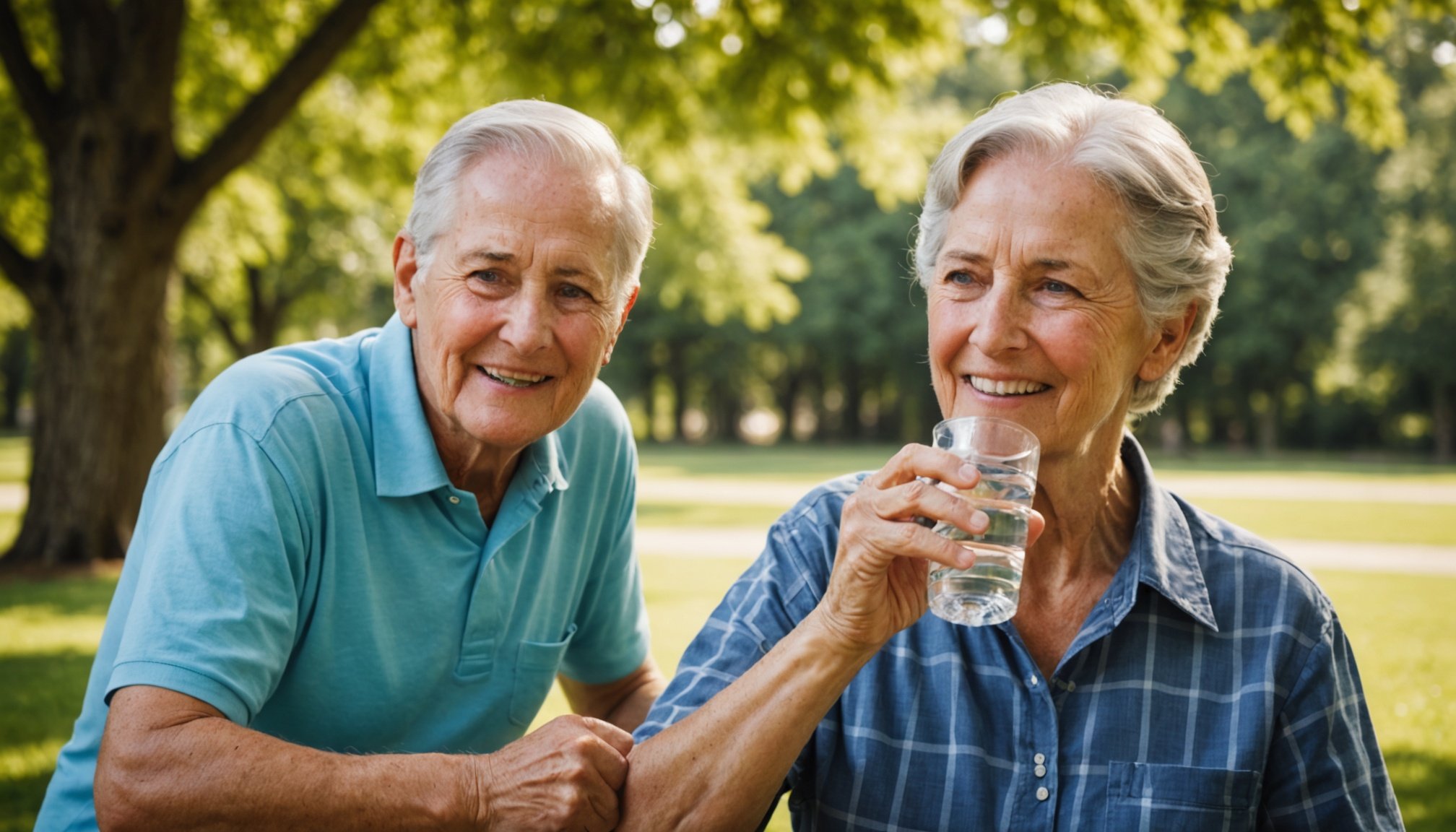As we age, our bodies undergo numerous changes that can impact our overall health. One critical aspect of maintaining good health is hydration. Proper intake of water and other fluids is essential for everyone, but it becomes even more vital for older adults. In this article, we will delve into the importance of hydration, how dehydration affects seniors, and practical tips for ensuring adequate fluid intake. Understanding these elements can help improve the quality of life for older individuals, allowing them to stay active and healthy.
Understanding the Importance of Hydration
Hydration is not just about drinking water; it encompasses the total fluid intake that the body needs to function properly. Every cell in our body depends on adequate hydration to perform its tasks. Particularly in older adults, the perception of thirst can diminish, leading to an increased risk of dehydration.
Also to read : How can engaging in volunteer work benefit the mental health of seniors?
Studies indicate that as we age, our bodies have less water content, which can complicate the regulation of body temperature and the maintenance of other essential functions. This makes it essential for seniors to be proactive about their fluid intake. Dehydration can lead to various health issues, including kidney problems, urinary tract infections, and even confusion or cognitive decline. The body uses water in digestion, circulation, absorption, and excretion, emphasizing the importance of staying hydrated.
Moreover, hydration plays a significant role in maintaining healthy skin. As we age, our skin tends to lose moisture and elasticity. This can lead to dryness and an increased appearance of wrinkles. Proper hydration helps maintain skin health, promoting a youthful appearance and reducing the risk of skin disorders.
Have you seen this : How can seniors take charge of their mental health through regular activities?
To ensure adequate hydration, it’s crucial for older adults to recognize the signs of dehydration, which may include dry mouth, fatigue, dizziness, and dark-colored urine. Regularly monitoring fluid intake and making a conscious effort to drink enough throughout the day can significantly impact overall health.
Risks of Dehydration in Older Adults
Dehydration can pose serious risks for older individuals. As mentioned, the ability to sense thirst diminishes with age. This often results in inadequate intake of fluids, leading to a cascade of health issues. Studies have shown that even mild dehydration can affect cognitive function, leading to confusion or memory issues, which are critical concerns for adults as they navigate daily activities.
Furthermore, dehydration can exacerbate existing health conditions. For those with chronic illnesses, such as diabetes or heart disease, maintaining proper hydration is essential. Dehydration can lead to increased blood viscosity and strain the heart, causing complications that may require medical attention. It can also lead to urinary tract infections, which are prevalent in older adults and can lead to serious health concerns if not treated promptly.
Another risk associated with dehydration is its impact on physical performance. Older adults who are dehydrated may experience decreased strength and endurance, making it difficult to engage in physical activities. This can create a cycle of decreased mobility, leading to further health decline.
To combat these risks, healthcare professionals emphasize the need for regular fluid intake. It’s not only about drinking water but also incorporating other hydrating beverages like herbal teas, and consuming fruits and vegetables with high water content. Avoiding excessive caffeine and alcohol is also advisable, as these can contribute to dehydration.
How to Encourage Proper Hydration
Encouraging proper hydration in older adults requires strategies that fit their lifestyle and preferences. One effective approach is to establish a routine around drinking fluids. For example, encouraging seniors to drink a glass of water before each meal can help them remember to hydrate consistently throughout the day.
In addition to establishing a routine, offering a variety of drinks can make hydration more enjoyable. While water is crucial, many adults may prefer flavored beverages. Herbal teas, infused water, or diluted fruit juices can serve as appealing alternatives. It’s essential to choose options that do not contain excessive sugars or caffeine, as these can lead to unwanted health issues.
Hydration can also be promoted through food choices. Many fruits and vegetables contain high levels of water and can contribute to overall fluid intake. Foods such as cucumbers, watermelon, oranges, and broth-based soups are excellent choices. Incorporating these into meals not only boosts hydration but also provides essential nutrients that support overall health.
Another strategy involves educating older adults and their caregivers about the signs of dehydration and the importance of monitoring fluid intake. Keeping a water bottle handy or using visual reminders can encourage more frequent drinking. Additionally, regular health check-ups can help identify hydration issues early, allowing for timely intervention.
Monitoring and Adjusting Hydration Needs
As individuals age, their hydration needs can change. Factors such as physical activity, climate, and health status all play a role in determining how much fluid is required. For seniors, it’s crucial to adjust hydration strategies based on these variables to ensure optimal health.
Monitoring one’s urine color can be an effective method to gauge hydration levels. Light yellow urine typically indicates good hydration, while darker shades may signal the need for increased fluid intake. Encouraging seniors to pay attention to these changes can empower them to take charge of their hydration needs.
In addition to monitoring urine color, older adults should be aware of their body’s cues. Feeling thirsty is a clear sign that the body needs more fluids, but other signs, such as dry lips or fatigue, can also indicate dehydration. Being in tune with these signals can help seniors respond promptly to their hydration needs.
Environmental factors should also be considered, especially during warmer months or when engaging in physical activities. In these situations, the body loses more water through sweat. Seniors might need to increase their intake during these times to prevent dehydration. Understanding these nuances can lead to better hydration habits and overall health.
In summary, the role of hydration in the health of older adults cannot be overstated. With age, the challenges of maintaining adequate fluid intake increase, making awareness and proactive measures essential. Dehydration can lead to serious health risks, affecting physical performance, cognitive function, and the management of chronic illnesses.
By understanding the importance of hydration, recognizing the signs of dehydration, and implementing strategies to encourage fluid intake, caregivers and seniors can work together to improve health outcomes. Ultimately, fostering good hydration habits can lead to a better quality of life, allowing older individuals to thrive in their daily activities. Remember, staying hydrated is a simple yet effective way to support health as we age.











